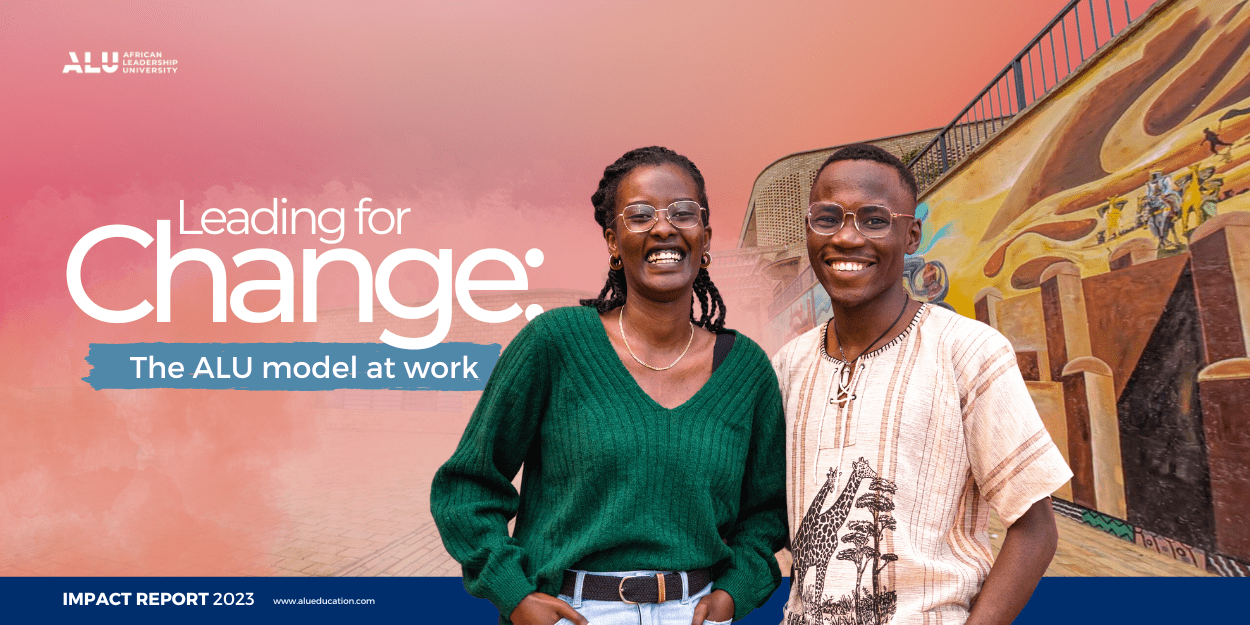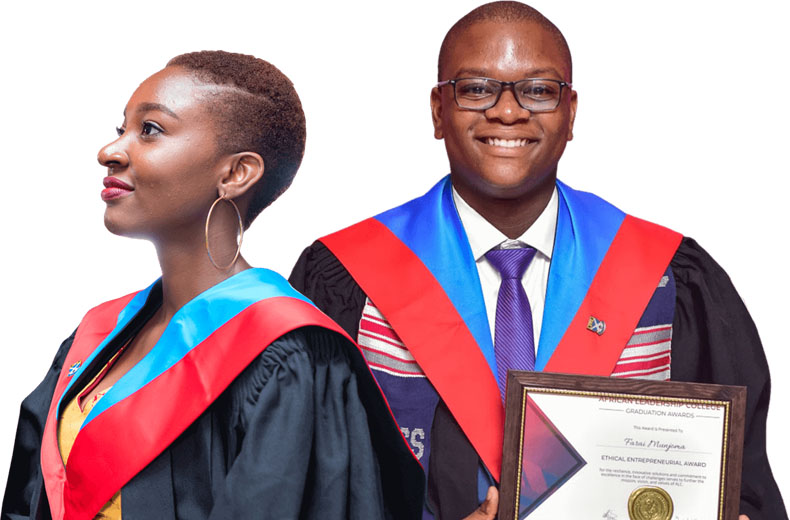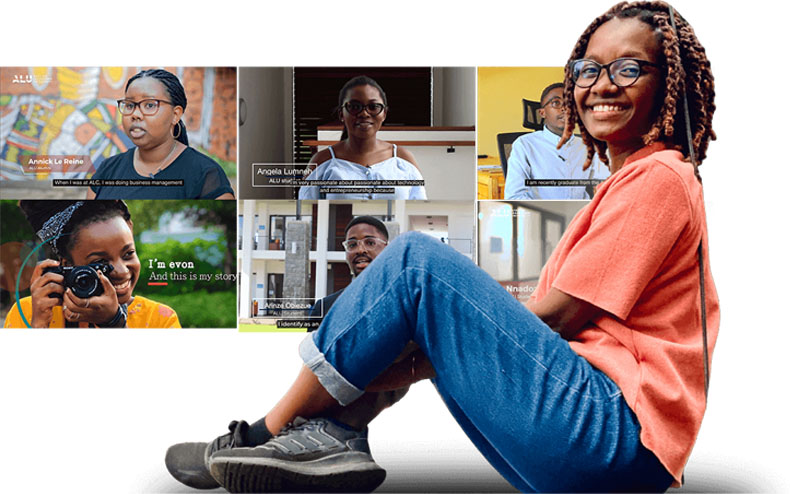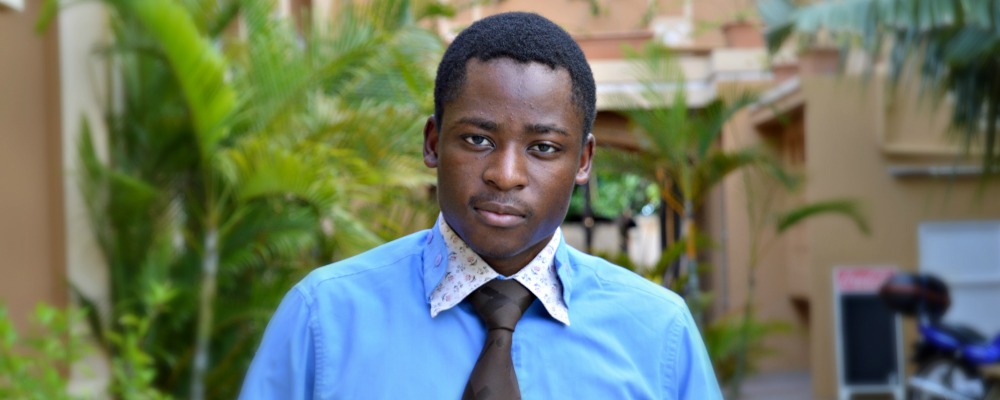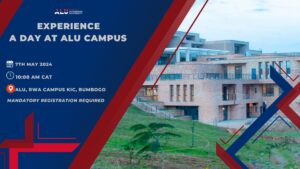It’s the Saturday morning of Diwali Week, and Amancio Sibinde appears, right on time, from the stairs of the student residence. He only got three hours of sleep last night, has put in long hours of work and still has more to go. He is wearing a rosewood v-neck t-shirt and a pair of relaxed-fit earth-yellow jeans.
“Heeey!” he says, his voice full of energy, as he breaks into a colossal smile. “I am so ready for this,” declares Amancio. He’s beaming with excitement. This is his first magazine interview.
There are few people as charming as 22-year-old Amancio Sibinde, who worked at the Presidential residence of Mozambique, Palacio da Ponta Vermelha, while a student at the Martin Luther King American Cultural Centre. In one fell swoop, Amancio joined African Leadership College (ALC), ALU’s inaugural campus in Mauritius, and found himself shouldering the dreams of an entire country.
A few minutes later we were walking down the street, headed to Trou-aux-Biches beach. Watching out for cars on the road, Amancio tells me, “I didn’t believe that I was admitted to ALC until I arrived here.” Amancio has an old-school attitude to life. He calls it “solid faith.” When I joke about his wavering faith on being admitted to ALC, he responds, “I was on a plane, but I kept asking myself, ‘Am I going to get there? God, are you sure about this?’ This journey was something else.”
Long before us Founders were awed by his charisma and his Portuguese lessons, Amancio was already an entrepreneur. His first memory of business was at age 19, working with 1980 Hotel which has affiliations with the Presidential Residence.
“Securing a job is very important in Mozambique, especially when you’re young. I started as a temporary employee and ended up recruiting new employees for the hotel.”
As a student in Maputo, Amancio recalls, “engaging in small businesses helped me earn an income which I used to cover my personal expenses, which did not sound necessary to my parents. If you have a goal you will always find a way to achieve it. I did everything you can think of to get big breaks.”
Life was not always a smoothly-paved road for Amancio. High school was tough; students had to bribe teachers to get good grades. It was the best school in the country, but very corrupt. “Teachers don’t want you to succeed. Corruption was a fashion. I still remember what my chemistry teacher told me during the finals: If you don’t give me $10 forget about passing chemistry.” recalls Amancio. After a long bitter struggle, he finally graduated. But things had just gotten worse. He couldn’t make it to university. Despite his high scores, he was rejected by all three of his favourite universities. Explaining the reality of education in his country, Amancio says, “if I had money and bribed them, I would have joined even without doing entrance exams. Corruption in Mozambique is extremely high to the extent that it is a normal procedure.”
A year after high school, which he remembers as “the worst in [my] life. I know what it means to be in a prison of my own making. You reach a point when you don’t have a reason to smile. You find yourself lost in the smile of others. And then you ask yourself, ‘Why can’t they be lost in my smile?’”. In the midst of these hard times, he applied to multiple jobs until he got his gig in the human resources department of the 1980 Hotel. He worked hard, made friends, and built a network. In one year, he was already in charge of recruiting temporary employees for big events. He later got an offer, through a person he met at an event, to work with the Presidential palace in coordinating events and ceremonies.
We walk back to the student residence for an indulgent dinner. While we tuck into delicious platters of fish, rice, and sorbets, Amancio tells me that most people who helped him throughout his life didn’t even know him. “They did it because they were naturally leaders. There are people who you can ask what leadership is, they don’t know, but it’s what they are doing. I believe that the greatest leaders are the ones we cannot see, those we don’t know; who are not famous.”
When I ask him, “Why do we sometimes fail in life?” he says, “we fail not because we are not informed, but we want to listen to a specific person. For example, if an expert announces on television that the world will collapse tomorrow, no one will take action. But if a president announces the same thing, everyone will act on it.” Amancio believes to succeed in life, we should listen more; not to people who talk the most, but to those who talk less.
As I get startled by his astute insight, I become curious to know who Amancio Sibinde will be 25 years from now. A 47-year-old Amancio, he says, “will run a non-traditional business. I want to value skills and pay people because of their skills and not education. I will give opportunities to people who don’t have skills or education to gain expertise and make a living. I value a person because he or she is human, motivated, and passionate.” Explaining his motivation behind that vision, he says, “grading people according to their education and skills filters out people who actually need opportunities. Today, we help people who want help instead of helping those who need help. It is the reason many people are still living below the poverty line despite all the efforts made. We, the youth, have the responsibility of changing the status quo. It took me leaving Mozambique to really understand how much change it needs. Ultimately,” he concludes, standing up and smiling for a few seconds, as if he is already running a company in his home country, “I will bring that change in Mozambique.”
This article originally appeared in the second edition of the ALC student-run, Banza Magazine. Read the magazine here.

